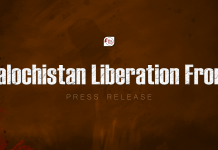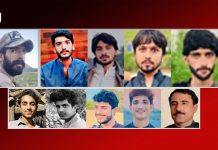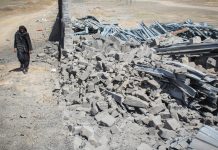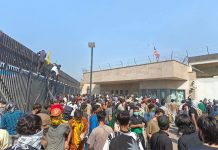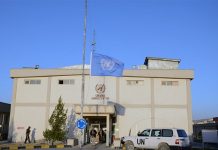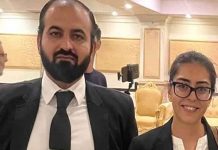The latest US-Taliban negotiations in Doha, which began on December 7, have been paused following Wednesday’s attack on a medical facility near Bagram air base that killed two civilians and wounded dozens more, Tolo news reported
According to sources, the five days of discussions have focused on the following three issues: a reduction of violence, a ceasefire and intra-Afghan negotiations.
The break in the talks was confirmed by a Taliban spokesman, Suhail Shaheen, on Thursday, December 12, who said in a tweet that the talks will resume after a few days.
The US Special Representative for Afghanistan Reconciliation, Zalmay Khalilzad, tweeted:
“When I met the Talibs today (Thursday December 12), I expressed outrage about yesterday’s attack on Bagram, which recklessly killed two and wounded dozens of civilians. Taliban must show they are willing and able to respond to Afghan desire for peace,” Khalilzad tweeted.
He continued: “We’re taking a brief pause for them to consult their leadership on this essential topic.”
Speaking of progress in the talks so far:
“They are apparently talking about whether to agree on a ceasefire before the intra-Afghan talks or after,” said Sayed Akbar Agha, a former Taliban commander.
“It will be good that they reach an agreement soon to help the intra-Afghan talks start and to stop the war,” said Haji Din Mohammad, deputy head of the High Peace Council (HPC).
“There are some protocol issues to find that who will be the guarantor—who will vouch for the signatories– and which country will be there as a witness during the signing of the agreement,” said Waliullah Shaheen, a political analyst in Kabul.
“Unless there are firm commitments for moving this process forward, there will be no desirable outcome from this–the people of Afghanistan want to hear a positive response regarding the ceasefire so that this process can move forward,” said Najia Anwar, spokeswoman for the State Ministry on Peace Affairs.
Meanwhile, Khalilzad has landed in Islamabad where he has held talks with senior Pakistani civilian and military leadership.
In Rawalpindi, Khalilzad called on Pakistani Army Chief Gen. Qamar Javed Bajwa and they discussed the security situation with particular reference to ongoing Afghan reconciliation, said a Pakistani military spokesman.
Khalilzad also met Pakistani Foreign Minister Shah Mahmood Qureshi in Islamabad.
Foreign Minister Qureshi assured Khalilzad that Pakistan will continue to “sincerely play the role of facilitator in the Afghan peace process.”
Qureshi noted that peace in Afghanistan is imperative for peace and stability in the region.
He reiterated Pakistan’s stance that there is no military solution to the Afghan conflict.













